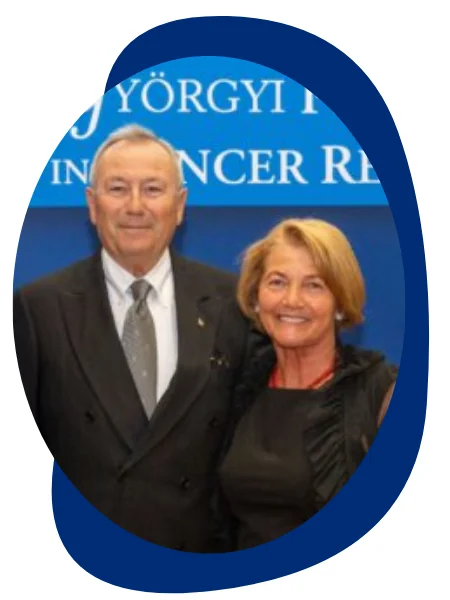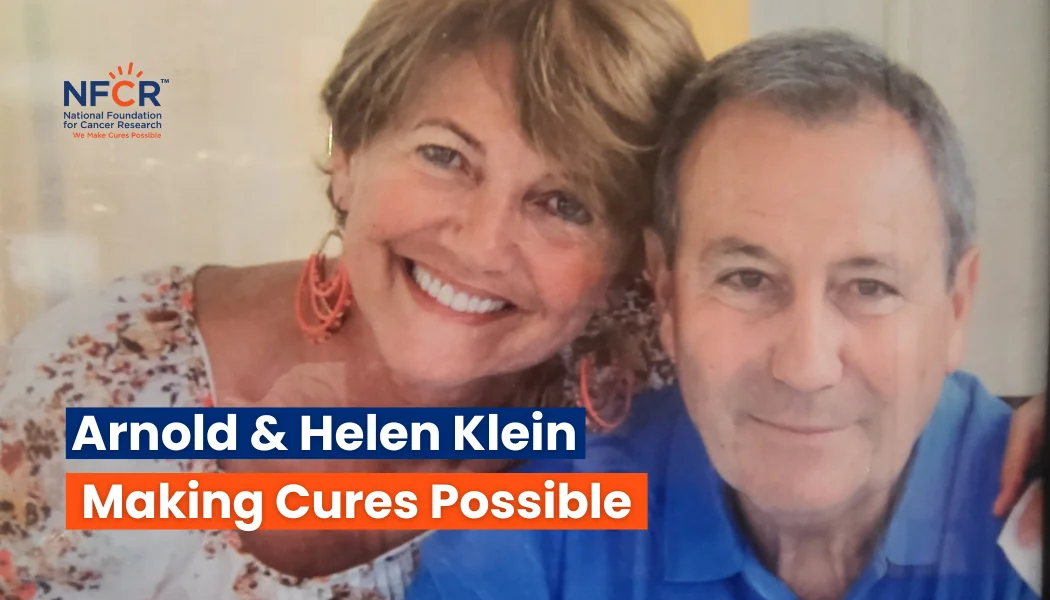Arnold and Helen Klein, Making Cures Possible for Other Cancer Patients
Arnold and Helen Klein and their two children are immigrants from Slovakia. Arnold’s strong work ethic made him a successful entrepreneur. In 2003, Arnold had a persistent cough, and Helen encouraged him to schedule a check-up appointment with the family doctor. The results of the blood test indicated a type of blood and bone marrow leukemia called Chronic myelogenous leukemia, or CML.
Fortunately for Arnold, the cancer research community developed a new type of drug, Gleevec, to target the gene abnormality in CML. Gleevec was approved by the U.S. FDA (Food and Drug Association) to treat CML in 2001, just two years before Arnold’s diagnosis. With Gleevec, the outcome for CML patients went from dismal to excellent long-term survival with little or no side effects.
Targeted therapy interferes or targets the cancer-causing genes or the proteins the genes make. It is the foundation of precision medicine – a core focus of NFCR initiatives. As research learns more about abnormal DNA changes and proteins that cause cancer, treatments can be designed to target the proteins.


In celebration of Arnold’s 20th year being cancer-free and NFCR’s 50th anniversary in the forefront of the battle against cancer, Arnold and Helen partnered with NFCR to develop The Arnold and Helen Klein Fund for Cancer Research. They hope their Fund inspires others to see the power of research and how research is the only way to end cancer in the future.
The Kleins will have a long-lasting impact on NFCR’s scientific programs as we work in partnership to make cures possible!
At the 2023 Global Summit event, Arnold was asked why he chose to support NFCR as his cancer research charity of choice. Simply put:
“I really look into the type of research NFCR supports. I learned of the impact their research was having on patients and the success stories. As I learned more, I liked their collaborative approach, their support of basic and critical research to support the discovery process, and they communicated their work to me in ways that I could understand from all angles. It was an easy choice in NFCR. Their work is improving the lives of patients. My hope is that my support of cancer research will mean that someone in the future doesn’t have to go through what I did with my cancer diagnosis. NFCR will help to find a cure. It’s my small way to give back. I’m cancer-free now, and I have no doubt that research will enable others who receive a diagnosis to become cancer-free also.”
Sign-up to Stay Informed About Cancer Research Breakthroughs with NFCR!
A world without cancer is possible. Help us turn lab breakthroughs into life-saving realities.

5.7 Million+
Donors who have fueled NFCR’s mission

$420 Million+
Invested in high-impact research & programs

36+ Labs & Hundreds of
Nobel Laureates & Key Scientists received NFCR funding, driving breakthrough research












